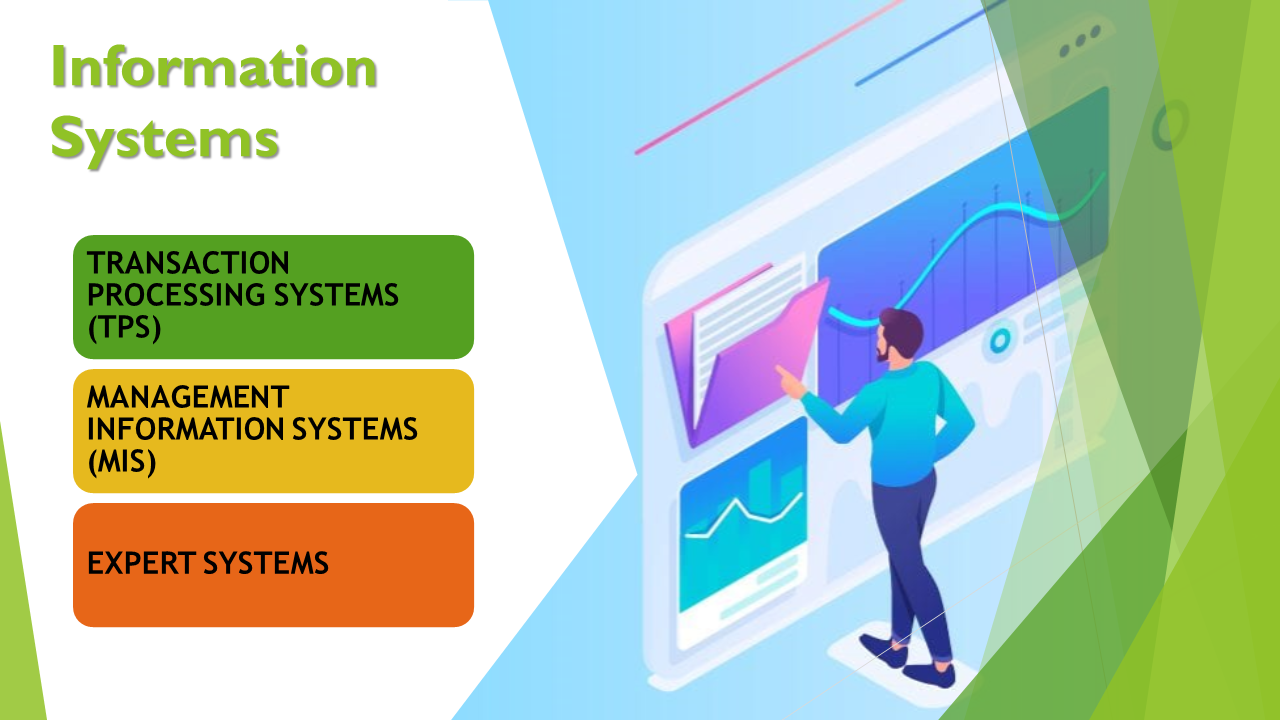Different information systems will be required within an organisation. The type of information system to be used will be determined by different needs:
- Level of decision (strategic, tactical or operational)
- The use of information (planning or control)
- Source type and application
- Destination (internal or external)
For this purpose, three different information systems are described: TPS, MIS and Expert Systems.

Click here to view a video that explains transaction processing systems.
Transaction Processing Systems (TPS)
These administrative systems serve the operational level of the organisation. It comprises a computerised system that (a) performs and (b) records daily activities and routine transactions in organisations.
Examples of the TPS include sales, receipts, orders, payments, banking transactions, payroll, hours worked and the flow of material in an operations department. Monitoring, control and the formulation of quantitative conclusions are possible.
Management Information Systems (MIS)
Managers and other decision-makers in an organisation need to access information readily and systematically. For this purpose, a Management Information System (MIS) can be utilized. The MIS includes internal and external information, therefore implying that sources from within the organisation are utilized. Sources outside the organisation do however also contribute to the MIS and the ability for management to make informed decisions. Data and information is processed and stored in a database that is regularly updated.
The MIS is designed to use information technology to meet the information needs of managers on a day to day basis. It can provide the managers with current and historical data. The use of information technology will be discussed within this learner guide.
Expert Systems
This system is programmed to select specific options when receiving certain inputs. This system is written in such a manner that managers can collect specialist data from a specific field. Expert systems are goal directed and must be constructed in such a way that specific data can be processed or retrieved in an expedient and accountable manner.